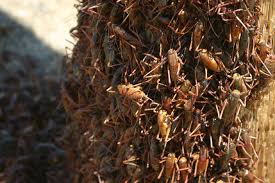
Breaking News
 EXPOSED: Big Pharma's Sinister Takeover of the Cannabis Industry w/ Inesa Ponomariovaite
EXPOSED: Big Pharma's Sinister Takeover of the Cannabis Industry w/ Inesa Ponomariovaite
 Another Massive Biden Scandal Exposed - Biden Had Cancer While President...
Another Massive Biden Scandal Exposed - Biden Had Cancer While President...
 BREAKING FINANCIAL TERRORISM ALERT: Learn How The Private Federal Reserve / Moody's...
BREAKING FINANCIAL TERRORISM ALERT: Learn How The Private Federal Reserve / Moody's...
 BREAKING: Alex Jones Responds To Kash Patel & Dan Bongino Claiming That They've Seen The Proof -
BREAKING: Alex Jones Responds To Kash Patel & Dan Bongino Claiming That They've Seen The Proof -
Top Tech News
 Cavorite X7 makes history with first fan-in-wing transition flight
Cavorite X7 makes history with first fan-in-wing transition flight
 Laser-powered fusion experiment more than doubles its power output
Laser-powered fusion experiment more than doubles its power output
 Watch: Jetson's One Aircraft Just Competed in the First eVTOL Race
Watch: Jetson's One Aircraft Just Competed in the First eVTOL Race
 Cab-less truck glider leaps autonomously between road and rail
Cab-less truck glider leaps autonomously between road and rail
 Can Tesla DOJO Chips Pass Nvidia GPUs?
Can Tesla DOJO Chips Pass Nvidia GPUs?
 Iron-fortified lumber could be a greener alternative to steel beams
Iron-fortified lumber could be a greener alternative to steel beams
 One man, 856 venom hits, and the path to a universal snakebite cure
One man, 856 venom hits, and the path to a universal snakebite cure
 Dr. McCullough reveals cancer-fighting drug Big Pharma hopes you never hear about…
Dr. McCullough reveals cancer-fighting drug Big Pharma hopes you never hear about…
 EXCLUSIVE: Raytheon Whistleblower Who Exposed The Neutrino Earthquake Weapon In Antarctica...
EXCLUSIVE: Raytheon Whistleblower Who Exposed The Neutrino Earthquake Weapon In Antarctica...
 Doctors Say Injecting Gold Into Eyeballs Could Restore Lost Vision
Doctors Say Injecting Gold Into Eyeballs Could Restore Lost Vision
Chaos as biblical plague of cannibal crickets invades US state creating 'death trap conditions**

In areas like Fillmore and Tooele, residents describe the invasion as 'apocalyptic', with bugs covering roads, fences, walls, and even the sides of homes.
Crushed crickets have made roads dangerously slick, leading to car accidents. In some counties, snow plows are being used to clear away tons of insects.
Mormon crickets are large, flightless katydids—shiny, reddish insects that can grow up to two inches long.
They're native to the western US, especially in states like Montana, Oregon, Utah, Idaho, and Nevada.
These crickets thrive in drought and warm weather, forming massive migrating swarms that can number in the millions.
Farmers are already reporting early crop losses, and backyard gardens are being stripped overnight. In small towns, the air reeks of rotting insects.
Officials are warning that the worst may be yet to come. Eggs that hatched in spring could lead to a second wave of crickets by summer.
Their name goes back to the 1800s, when Mormon pioneers in Utah faced a similar outbreak.
Early settlers watched helplessly as the insects devoured entire fields of wheat, corn, and barley.
Residents are being urged to seal cracks in their homes, eliminate food and water sources, regularly take out the trash, and check dark areas indoors for signs of infestations.
Jed Christensen, a homeowner and business owner in Millard County, told FOX 13 he plans to hire pest control for a growing problem at his store on the town's north side.
Christensen remembers how bad the infestations were when he was a child growing up in Millard.
'I remember walking down Corn Creek Canyon as a little boy, sprinting through the thick patches because we were scared to walk through them,' he said.
'We were coming down the canyon road, and it looked like we were running through water. They would just part for us. So yeah, I've dealt with this before.'
Now, in 2025, history is repeating itself. A dry winter and mild weather have allowed cricket eggs to survive in large numbers.
Pest control companies say spring and fall are their busiest times, and they're urging homeowners to take action early.



